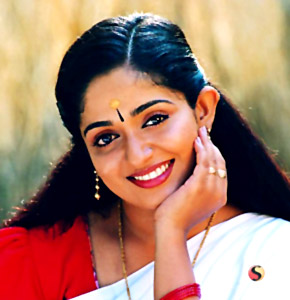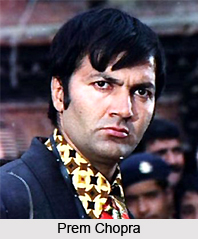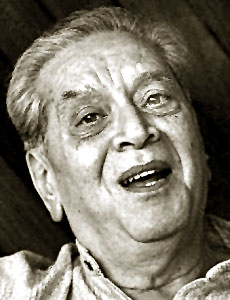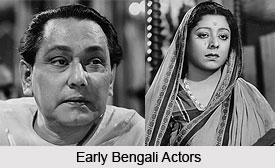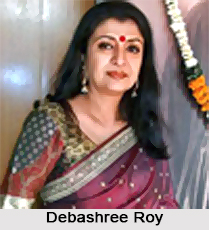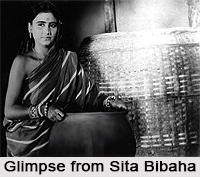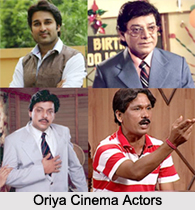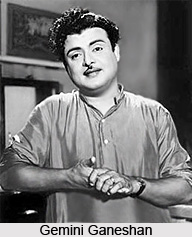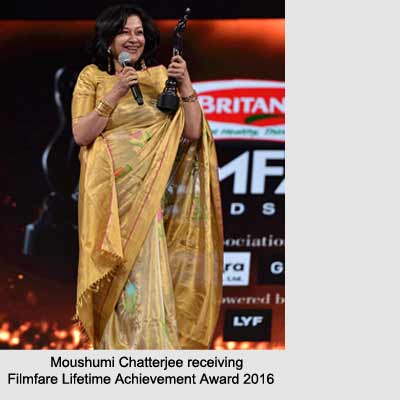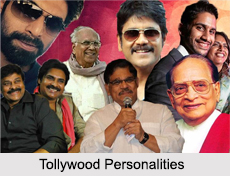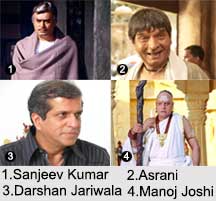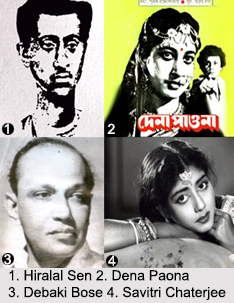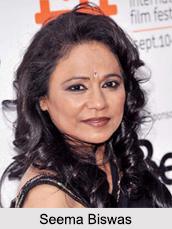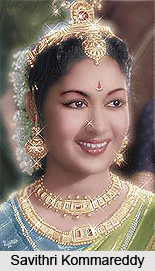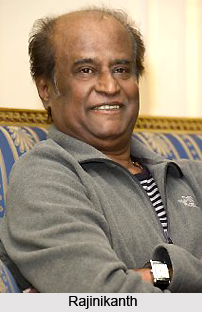 Rajinikanth is an Indian actor, one of the most popular movie stars of the country and the most popular megastar of South India. Having worked primarily in the Tamil film industry, he is revered as a cultural icon down south. His mannerisms and stylised dialogue delivery in films contribute to his mass appeal. He has also acted in the movies of Telugu, Kannada, Malayalam, Hindi and Bengali cinemas as well as Hollywood. He made his acting debut in K. Balachander"s Tamil drama "Apoorva Raagangal" in the year 1975 and followed it with portraying antagonistic characters in Tamil films for a brief phase. He later played lead roles in many commercially successful movies and established himself as a superstar, and has since continued to hold a matinée idol status in the popular culture of Tamil Nadu. In his illustrious career, Rajinikanth has been honoured with several awards and accolades, including a Filmfare Best Tamil Actor Award, the Padma Bhushan in 2000 and the Padma Vibhushan, India"s second highest civilian honour by the Government of India in 2016, for his contribution to the arts.
Rajinikanth is an Indian actor, one of the most popular movie stars of the country and the most popular megastar of South India. Having worked primarily in the Tamil film industry, he is revered as a cultural icon down south. His mannerisms and stylised dialogue delivery in films contribute to his mass appeal. He has also acted in the movies of Telugu, Kannada, Malayalam, Hindi and Bengali cinemas as well as Hollywood. He made his acting debut in K. Balachander"s Tamil drama "Apoorva Raagangal" in the year 1975 and followed it with portraying antagonistic characters in Tamil films for a brief phase. He later played lead roles in many commercially successful movies and established himself as a superstar, and has since continued to hold a matinée idol status in the popular culture of Tamil Nadu. In his illustrious career, Rajinikanth has been honoured with several awards and accolades, including a Filmfare Best Tamil Actor Award, the Padma Bhushan in 2000 and the Padma Vibhushan, India"s second highest civilian honour by the Government of India in 2016, for his contribution to the arts.
Early Life of Rajinikanth
Rajinikanth, born Shivaji Rao Gaekwad on December 12, 1950, in a Marathi family to Ramoji Rao Gaekwad, a police constable and Ramabai, a housewife, in Bengaluru city of Karnataka. The youngest of four siblings, he lost his mother at the age of 9. He did his primary schooling from Gavipuram Government Kannada Model Primary School and later was enrolled in Ramakrishna Math, a Hindu monastery set up by Ramakrishna Mission, where he started acting in plays. After the sixth grade, he was enrolled at the Acharya Pathasala Public School, where he studied till completion of his pre-university course and spent a lot of time acting in plays. On one such occasion, he performed the role of the villainous Duryodhana in the play "Kurukshetra". Post school education, Rajinikanth did various odd jobs in Bangalore and Madras cities, including that of a "coolie" and carpenter, while later as a bus conductor for the Bangalore Transport Service. He began to take part in stage plays after Kannada playwright Topi Muniappa offered him a chance to act in one of his mythological plays. In 1973, with the encouragement and financial support from his friend and co-worker Raj Bahadur, he joined the Madras Film Institute for a diploma in acting. During his stay there while performing in a stage play, he got noticed by the eminent filmmaker K. Balachander, who advised him to learn to speak Tamil, which the aspiring actor quickly followed.
Film Career of Rajinikanth
Rajinikanth began his film career in 1975 with the Tamil film "Apoorva Raagangal" directed by K. Balachander, in which he played a relatively small role of an abusive husband, but got noticed in his performance. He next appeared in "Katha Sangama" (1976), directed by Puttanna Kanagal, in which he played a small character of a village ruffian who rapes a blind woman in her husband"s absence. This was followed by a number of Telugu films, such as Balachander"s "Anthuleni Katha" where he for the first time played a pivotal role, "Moondru Mudichu" and "Chilakamma Cheppindi". He continued performing negative roles in these movies, mostly of a womaniser. His style of flipping the cigarette made him popular among the audience.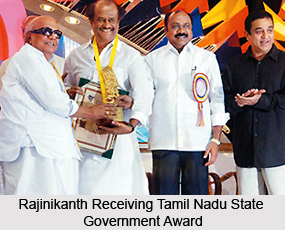 Director S. P. Muthuraman first experimented with Rajinikanth with a positive role in Tamil film "Bhuvana Oru Kelvi Kuri". The film"s success got the duo work in 24 more films till the 90s. Rajinikanth got his first lead role in Tamil cinema with the film "Bairavi" in 1978. It was this very film that brought him the sobriquet "Superstar". His next films, C. V. Sridhar"s "Ilamai Oonjal Aadukirathu" and J. Mahendran"s "Mullum Malarum" were both successful, with the latter winning the Filmfare Award for Best Tamil Film and earning Rajinikanth the Best Actor award at the Tamil Nadu State Film Awards. Following this, he made a foray into Malayalam cinema with the fantasy film "Allauddinum Albhutha Vilakkum" that was based on a story from Arabian Nights. By 1980, Rajinikanth had become a popular actor in South Indian cinema.
Director S. P. Muthuraman first experimented with Rajinikanth with a positive role in Tamil film "Bhuvana Oru Kelvi Kuri". The film"s success got the duo work in 24 more films till the 90s. Rajinikanth got his first lead role in Tamil cinema with the film "Bairavi" in 1978. It was this very film that brought him the sobriquet "Superstar". His next films, C. V. Sridhar"s "Ilamai Oonjal Aadukirathu" and J. Mahendran"s "Mullum Malarum" were both successful, with the latter winning the Filmfare Award for Best Tamil Film and earning Rajinikanth the Best Actor award at the Tamil Nadu State Film Awards. Following this, he made a foray into Malayalam cinema with the fantasy film "Allauddinum Albhutha Vilakkum" that was based on a story from Arabian Nights. By 1980, Rajinikanth had become a popular actor in South Indian cinema.
Rajinikanth`s films during the 1990s were also immensely successful. "Thalapathi", "Annamalai", "Baashha", "Muthu", "Arunachalam" and "Padayappa" are some of the hit films from this era. His fame was no longer restricted within the subcontinent. Films like "Muthu" were dubbed into Japanese. The star status of the actor was completely transformed. From a popular actor, he was hailed and worshipped as a demigod. His popularity had him act in Bollywood"s major projects to draw the masses, such as "Andha Kanoon", "Bewafai", "Chaalbaaz", "Uttar Dakshin", "Geraftaar", "Hum" and "Aatank Hi Aatank", few of these becoming the highest grossing films of that time. In 1988, he ventured into Hollywood with the film "Bloodstone" directed by Dwight Little, in which he played an English-speaking Indian taxi driver. He also ventured into Bengali cinema with the film "Bhagya Debata" in 1995.
After a sabbatical, Rajinikanth returned with the film "Baba" in 2002, which failed to meet the market expectations and incurred huge losses. The critics had almost written him off, but the star revived his former glory and rewrote box office history with "Chandramukhi" in 2005. It was also dubbed in Turkish and German, and released in those nations. In summer 2007, "Sivaji" was released, which became the first Tamil film to be charted as one of the "top-ten best films" of United Kingdom and South Africa box offices. Rajinikanth received a pay of Rs. 26 Crores for the film, which made him the second highest paid actor in Asia after Jackie Chan. Rajinikanth worked again with director S. Shankar for the science fiction film "Enthiran". The film was released worldwide in 2010 as the most expensive Indian film ever made, ultimately becoming the second highest-grossing film in India of its time. Superstar Rajinikanth was paid a remuneration of Rs. 45 Crores for the film. After prolonged illness and hospitalisation in 2011, Rajinikanth worked in "Kochadaiyyan", a first-of-its-kind motion capture film in India, which released in 2014 to positive reviews. "Kochadaiiyaan" and the 3D release of "Sivaji" in 2012 made Rajinikanth the first Indian actor to have appeared in four different forms of cinema - black-and-white, colour, 3D and motion capture. Rajinikanth next appeared in Ravikumar`s "Lingaa", alongside Anushka Shetty and Sonakshi Sinha. The film received mixed reviews. His next project is a mob film titled "Kabali" to be directed by Pa. Ranjith and produced by S. Thanu, following which he would be seen in the sequel to "Enthiran", titled "2.0", reprising his role in the original alongside Akshay Kumar who would play the villain. The film, slated for a 2017 release, will surpass the "Baahubali" series as the most expensive Indian film to date.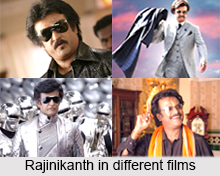
Awards and Honours received by Rajinikanth
Rajinikanth in his illustrious career has been honoured with the following awards.
•Filmfare Award for Best Actor (South) for "Nallavanuku Nallavan" in 1984
•Padma Bhushan from Government of India in 2000
•Raj Kapoor Award from the Government of Maharashtra in 2007
•Indian Entertainer of the Year by NDTV in 2007
•Chevalier Sivaji Ganesan Award for Excellence in Indian Cinema at Vijay Awards, 2007
•Entertainer of the Decade Award by NDTV in 2011
•Top 25 Greatest Global Living Legends by NDTV in 2013
•Padma Vibhushan from Government of India in 2016
In 2015, a film about his fandom "For the Love of a Man" premiered at the 71st Venice International Film Festival. Rajinikanth is also the only Indian actor to be featured in the Central Board of Secondary Education (CBSE) syllabus, in a lesson titled "From Bus Conductor to Superstar".
Personal Life of Rajinikanth
On February 26, 1981, Rajinikanth married Latha Rangachari, in Tirupati, Andhra Pradesh. They have two daughters named Aishwarya and Soundarya. Latha runs a school named "The Ashram". Aishwarya married actor Dhanush in 2004 and they have two sons, Yathra and Linga. Soundarya is associated with the Tamil film industry and works as a director, producer and graphic designer. She married industrialist Ashwin Ramkumar in 2010.







